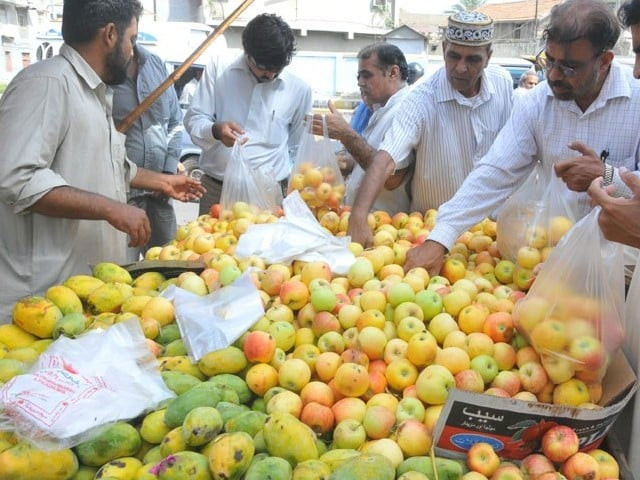Inflation rises 3.9% in Sept on back of increase in food prices
Core inflation goes up 4.8%, the highest level in one and a half year

Core inflation goes up 4.8%, the highest level in one and a half year. PHOTO: MOHAMMAD AZEEM/EXPRESS
Inflation measured by the Consumer Price Index (CPI), which captures prices of 481 commodities in urban centres, rose 3.9% in September compared to the same month of previous year, reported Pakistan Bureau of Statistics (PBS) on Monday.
Inflation accelerates to 4.12% in July
The national data collecting agency has not yet devised a mechanism to capture price trends in rural areas, where majority of the population lives. A moderate acceleration in prices continues that has built up inflationary pressures. This is also evident from a persistent increase in non-food and non-energy inflation.
The non-food non-energy category, known as core inflation, rose 4.8% in September - the highest level in one and a half year. Last time, the core inflation had risen 4.9% in May 2015.
The national statistics agency released the inflation bulletin days after the State Bank of Pakistan (SBP) kept its key policy rate - at which it lends to commercial banks - unchanged at 5.75% in the monetary policy for the next two months.
The central bank has so far been following the International Monetary Fund (IMF)’s advice to adopt a “prudent monetary policy”.
In its policy announcement, the central bank noted that an expected pickup in domestic demand would largely determine the inflation path in the remaining months of fiscal year 2016-17. It said uncertain global oil prices continued to remain a major determining risk.
Analysts expect a moderate increase in the international crude prices after the Organisation of Petroleum Exporting Countries (Opec) - a cartel comprising countries that produce 40% of world’s oil - proposed production curbs in its September 28 meeting.
The SBP said while the global growth outlook for 2016 was subdued, trend in international oil prices remained uncertain. Anticipation of the impact of interest rate hike by the US Fed, slowdown in Chinese economy and aftermath of Brexit on international financial and commodity markets was building up on the prevalent uncertainty, it said.
Perishable food items push inflation up by 3.56%
For 2016-17, the government has set the inflation target at 6% while the IMF and SBP projections are below that level. Average inflation for July-September stood at 3.86%, according to the PBS.
The capital market has already started expecting an increase in interest rates, resulting in a slight rise in government’s borrowing costs.
After increasing yields on Pakistan Investment bonds, the government has also marginally revised upwards rates of return on its savings schemes from the current month.
The Directorate of National Savings increased the profit rate on Defence Savings Certificates by 0.11% to 7.44%. On Special Savings Certificates, it increased the profit rate by 0.24% to 5.86% and on Behbood Savings Certificates by 0.24% to 9.36%.
The inflation rose primarily on the back of increase in prices of food items. Food inflation went up 4%, up from August’s 3.6%.
Published in The Express Tribune, October 4th, 2016.
Like Business on Facebook, follow @TribuneBiz on Twitter to stay informed and join in the conversation.



















COMMENTS
Comments are moderated and generally will be posted if they are on-topic and not abusive.
For more information, please see our Comments FAQ